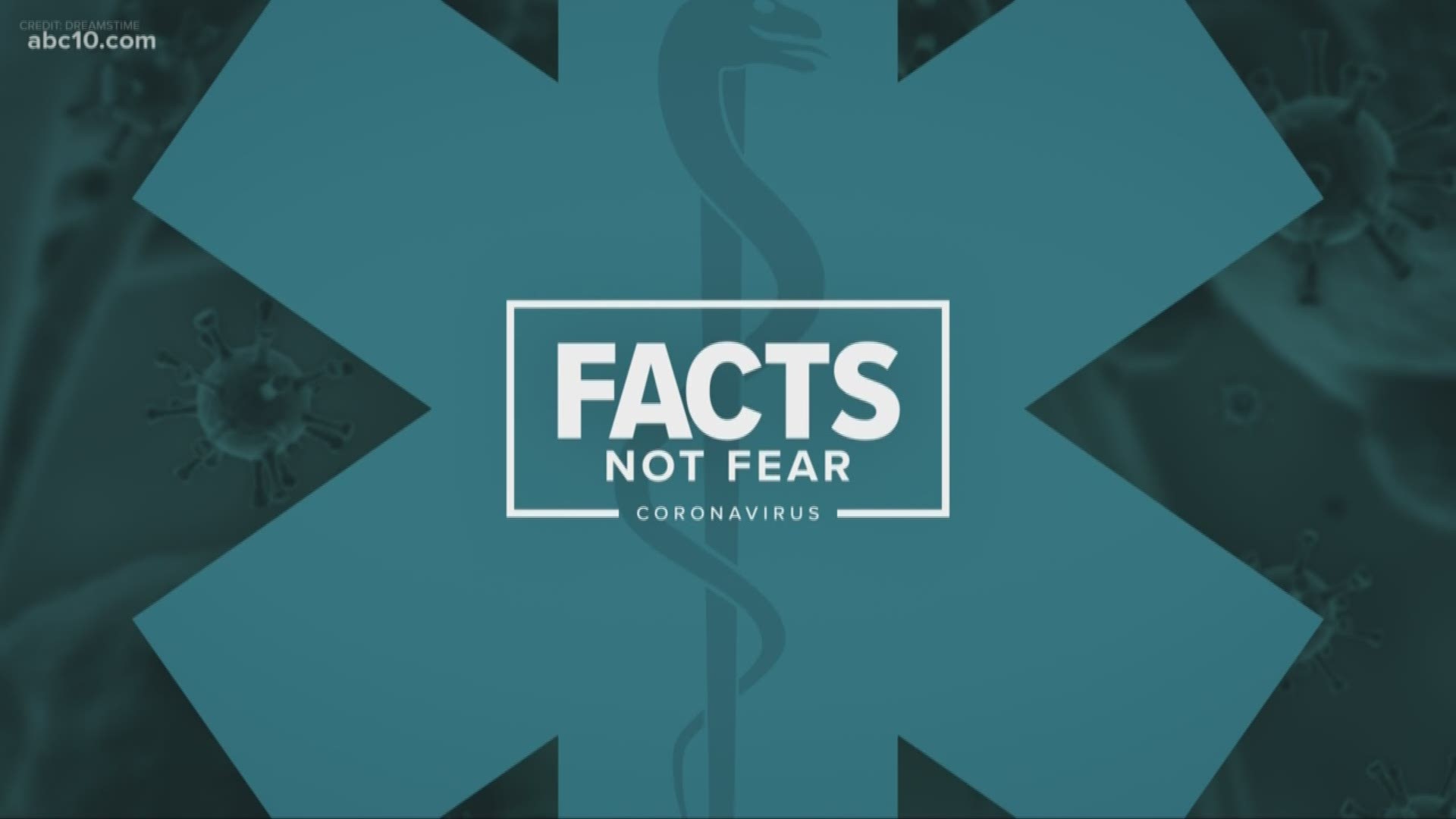SACRAMENTO, Calif. — In a special meeting Sacramento City Council meeting Friday, Mayor Darrel Steinberg and council members declared a state of emergency due to the coronavirus pandemic.
The emergency declaration is aimed at implementing a plan to help residents and businesses that have been impacted by coronavirus (COVID-19).
Here are the highlights:
Schools closed for three weeks: In the Sacramento area, schools will be closed for the next three weeks, according to Mayor Darrell Steinberg.
$1 million economic relief package for small businesses: This will come Will in the form of $25,000 zero-interest loans, according to Steinberg. The up to $25,000 loans will be available to both full and part time businesses with 25 employees or fewer. They will be restricted and awarded on a first come, first served basis.
"1 million dollars is not a lot of money given the magnitude of shutting down public events and local businesses," Steinberg said. "The $25,000 is important to give businesses a lifeline."
The mayor went on to say that arts organizations are struggling more than other businesses right now, the city is in the process of assisting them. Ultimately, they may need help from the private sector though, Steinberg said, since city money will not be enough.
Response to homeless populations:
"Many of our homeless residents are living in close proximity to each other," said Vice Mayor Angelique Ashby. "We need to have a focused response on what would happen if there was viral outbreak in one of our homeless shelter."
City council members addressed the issue of short supply when it comes to toilet paper, sanitizer and cleaning supplies, and said part of the national emergency is to mobilize manufacturing in the United States to get critical items to those who most need them.
Prohibit evictions for residents and businesses: By March 20 the city will follow Governor Newsom's Thursday announcement to prohibit evictions of residents and businesses unable to pay rent for reasons related to coronavirus.
Cancellation of special events permits: Mayor Steinberg said the city will cancel permits and refund permit fees to event organizers with gatherings of more than 250 people planned. The events will be canceled for at least the next 30 days.
Events under 250 people can continue - which includes pop-ups events and events at community centers, the mayor said.
Downtown "Parking holiday" approved: Assistant City Manager Hector Barron said free parking will take place weekdays after 4:30 p.m. and be free all weekend as a way to support local businesses and encourage shoppers to visit.
"We can implement this today," Barron said, adding that there may be a lag in the meters but city officials won't be enforcing the meters at those specific times. This will be in effect for at least the next 30 days (as of March 13, 2020).
Prior to the meeting, the city council shared the meeting agenda posted online, which showed that they planned to discuss adopting resolutions declaring a state of emergency in Sacramento and “taking related actions”; giving direction to the city manager and city attorney to implement those actions; and increasing the city manager’s spending authority to $250k for emergency response needs.
At a press conference on Thursday, Mayor Darrell Steinberg said the city has plans to support small business hit affected by the coronavirus. Steinberg said the city will establish a $1 million economic relief package for the small businesses that will come in the form of $25,000 zero-interest loans.
The meeting was solely live streamed to be in compliance with Gov. Gavin Newsom’s executive order prohibiting large gatherings of more than 250 people.
GET MORE INFO:
COVID19 BACKGROUND
According to the CDC, coronavirus (COVID-19) is a family of viruses that is spreadable from person to person. Coronavirus is believed to have been first detected in a seafood market in Wuhan, China, in December 2019. If someone is sick with coronavirus, the symptoms they may show include mild to severe respiratory illness, cough, and difficulty breathing.
Currently, there is no vaccine; however, the CDC suggests the following precautions, along with any other respiratory illness:
- Avoid close contact with people who are sick.
- Avoid touching your eyes, nose, and mouth.
- Stay home when you are sick.
- Cover your cough or sneeze with a tissue, then throw the tissue in the trash.
- Clean and disinfect frequently touched objects and surfaces using a regular household cleaning spray or wipe.
- Wash your hands with soap and water for a minimum of 20 seconds.
WHY HEALTH OFFICIALS ARE SO CONCERNED
Some people have compared the low overall death toll to the flu's high annual death toll in the United States as a reason not to be concerned about COVID-19, however, doctors and health officials are concerned for three main reasons:
- There's no vaccine yet and won't be one for until early 2021, at the soonest. Scientists are still researching what other medications could help patients.
- Some people have built up immunity to the flu, but few have immunity to COVID-19 version of coronavirus.
- Both the flu and COVID-19 are spread by droplets, but COVID-19 might be spread in the air. Scientists are researching exactly how COVID-19 spreads.
HEAR FROM DOCTORS:
Dr. Payal Kohli, a cardiologist & doctor of internal medicine, spoke with ABC10's Walt Gray about the novel coronavirus, those most at risk, vaccine timeline, & more.
Dr. Dean Blumberg, the Chief of Pediatric Infectious Diseases at UC Davis, answered some FAQs from ABC10 viewers about the coronavirus:

